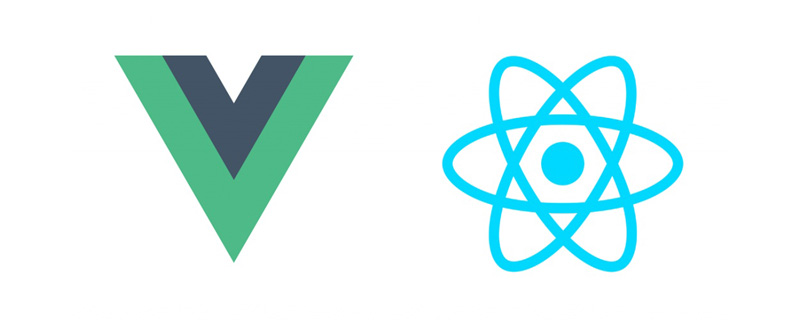 Web Front-end
Web Front-end Vue.js
Vue.js Vue development experience sharing: experience in optimizing development process and work efficiency
Vue development experience sharing: experience in optimizing development process and work efficiency
Vue.js is a popular JavaScript framework for building user interfaces and single-page applications. Its concise syntax, flexibility and powerful functions make it the first choice of many developers. In recent project development, my team and I have accumulated some experience in optimizing development processes and work efficiency, which we would like to share with you.
First of all, as the basis for Vue.js development, we must fully understand the ecosystem and core concepts of Vue.js. The core concepts of Vue.js include data drive, component system and routing. In actual projects, we should fully understand these concepts and be able to flexibly apply them to projects. On this basis, we can use Vue CLI to quickly build the project structure, including custom configuration, plug-in installation, project initialization, etc., which can help us quickly start the project and standardize the project structure.
Secondly, we must be good at utilizing the component development of Vue.js. Splitting the page into independent small components will help improve code reuse and reduce maintenance costs. We can also use Vuex for global state management, which is especially important for large projects. In actual development, we must pay attention to communication and data management between components to avoid excessive component coupling.
For engineering, we must be good at using tools to improve development efficiency. For example, use ESLint to standardize code style, use Prettier to format code, use Webpack for module packaging, and so on. The use of these tools can help us write code more efficiently and standardizedly during the development process.
In front-end development, it is inevitable to encounter API interface calls. At this time, we can use Axios to make network requests, which can simplify the HTTP request process and provide a wealth of configuration items and interceptors. For the management of API interface documents, we can use tools such as Swagger to automatically generate interface documents to facilitate collaborative development by multiple people.
In addition, mobile terminal adaptation is also an inevitable problem. We can use solutions such as rem or flexible.js for mobile adaptation. They can well solve the problems caused by the screen sizes of different devices, so that the page can be displayed well on different devices.
Finally, testing and deployment are also aspects that must be paid attention to in project development. We can use tools such as Jest for unit testing to ensure the stability and reliability of the project. During the deployment phase, we can use Docker container deployment and tools such as Nginx for reverse proxy and load balancing to improve the performance and stability of the project.
In summary, the key to optimizing the Vue development process and work efficiency is to have an in-depth understanding of the core concepts of Vue, be good at utilizing Vue's component development, use front-end engineering tools to improve development efficiency, and reasonably manage API interfaces and processes. Mobile terminal adaptation, and focus on testing and deployment. Only on the basis of constantly summarizing practical experience can we better leverage the advantages of Vue.js and improve the quality and development efficiency of the project.
The above is the detailed content of Vue development experience sharing: experience in optimizing development process and work efficiency. For more information, please follow other related articles on the PHP Chinese website!
 vue中props可以传递函数吗Jun 16, 2022 am 10:39 AM
vue中props可以传递函数吗Jun 16, 2022 am 10:39 AMvue中props可以传递函数;vue中可以将字符串、数组、数字和对象作为props传递,props主要用于组件的传值,目的为了接收外面传过来的数据,语法为“export default {methods: {myFunction() {// ...}}};”。
 聊聊vue指令中的修饰符,常用事件修饰符总结May 09, 2022 am 11:07 AM
聊聊vue指令中的修饰符,常用事件修饰符总结May 09, 2022 am 11:07 AM本篇文章带大家聊聊vue指令中的修饰符,对比一下vue中的指令修饰符和dom事件中的event对象,介绍一下常用的事件修饰符,希望对大家有所帮助!
 如何覆盖组件库样式?React和Vue项目的解决方法浅析May 16, 2022 am 11:15 AM
如何覆盖组件库样式?React和Vue项目的解决方法浅析May 16, 2022 am 11:15 AM如何覆盖组件库样式?下面本篇文章给大家介绍一下React和Vue项目中优雅地覆盖组件库样式的方法,希望对大家有所帮助!
 react与vue的虚拟dom有什么区别Apr 22, 2022 am 11:11 AM
react与vue的虚拟dom有什么区别Apr 22, 2022 am 11:11 AMreact与vue的虚拟dom没有区别;react和vue的虚拟dom都是用js对象来模拟真实DOM,用虚拟DOM的diff来最小化更新真实DOM,可以减小不必要的性能损耗,按颗粒度分为不同的类型比较同层级dom节点,进行增、删、移的操作。


Hot AI Tools

Undresser.AI Undress
AI-powered app for creating realistic nude photos

AI Clothes Remover
Online AI tool for removing clothes from photos.

Undress AI Tool
Undress images for free

Clothoff.io
AI clothes remover

AI Hentai Generator
Generate AI Hentai for free.

Hot Article

Hot Tools

PhpStorm Mac version
The latest (2018.2.1) professional PHP integrated development tool

Safe Exam Browser
Safe Exam Browser is a secure browser environment for taking online exams securely. This software turns any computer into a secure workstation. It controls access to any utility and prevents students from using unauthorized resources.

SublimeText3 English version
Recommended: Win version, supports code prompts!

Dreamweaver CS6
Visual web development tools

SublimeText3 Mac version
God-level code editing software (SublimeText3)









